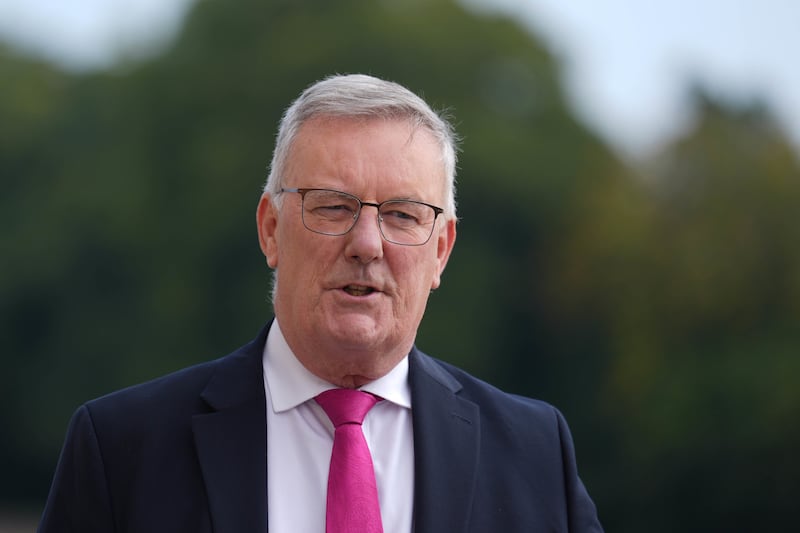MLAs have described a new three-year plan to reform health and social care in Northern Ireland as “a wish list” and “lacking in detail.”
The Health Minister Mike Nesbitt unveiled his proposals to the Assembly on Tuesday, but was met with a lukewarm response from the Alliance and the SDLP.
With the themes of stabilisation, reform and delivery - Mr Nesbitt said his plan included a “good deal” for staff pay in 2024/25, while strategic initiatives included bringing forward a new obesity framework, implementing the Northern Ireland provisions in the UK Government’s Tobacco and Vapes Bill and advancing plans for minimum unit pricing for alcohol.
“Since taking office, I have underlined the need to build hope for all those who deliver, use and rely on health and social care services,” he said.
“I believe this three-year plan will make a significant contribution by indicating my direction of travel to secure better outcomes for staff, patients, service users and the population at large.”
The Health Minister Mike Nesbitt has outlined some of the initiatives in the new three-year strategic plan for health and social care.
— Department of Health (@healthdpt) December 10, 2024
🔗Plan: https://t.co/3atsyqdvvF pic.twitter.com/rhzAYlKl5U
- Minister Mike Nesbitt’s plan to fix the health system revealedOpens in new window
- Mike Nesbitt must take control as delays and cost overruns plague Belfast’s new regional maternity hospital - The Irish News viewOpens in new window
- Mike Nesbitt won’t support funding allocation that breaks health workers’ pay parityOpens in new window
While “acutely aware” of the intense pressures facing staff and limited resources, he said “stabilisation” was the only viable option for this year.
“Of course, the pace of progress will be heavily influenced by future budget settlements and successful partnership working across the Executive,” he said.
The other measures included a new lung screening programme and an expanded bowel screening programme.
Health and social care trusts will be challenged to deliver and extra 46,000 outpatient assessments and 11,000 additional treatments each year by 2027.
He also said a plan would be published by April for completing the multi-disciplinary team model for General Practice across Northern Ireland.
In addition, he said proposals would be brought forward for an organisational duty of candour as well as considering plans for an individual duty of candour.
The SDLP’s Opposition Health Spokesperson Colin McGrath MLA said he broadly supported the plans but was concerned “that this plan is no more than a wish list” that was unlikely to be delivered “given the current trajectory of this Executive and the funding available to the Department of Health.”
He said he was not reassured by Mr Nesbitt when asked if the plan was fully-funded, time bound and had the support of the Executive.
“The only concrete response the Minister could give was that he would ask under pressure staff to see more patients,” he said.
“Asking staff who are close to burnout to do more simply isn’t realistic.”
Mr McGrath suggested that staff should be given pay parity and that a “proper plan for long overdue transformation” was brought to the Assembly.

Alliance health spokesperson, Nuala McAllister MLA, commented: “This plan is ambitious in its scope but unfortunately it does not contain anything new, along with a serious lack of detail.
“The Minister did not outline a roadmap on how better health outcomes will actually be delivered for patients and again, we ended up hearing a wishlist as opposed to anything substantial or indeed realistic.”
She said health funding was continually used as “an excuse for inaction,” but said Mr Nesbitt must accept systemic change as he could not expect to absorb the entire Executive budget.
“Simply put, it costs more to stand still than prioritise preventative health, early screening and tackling health inequalities,” she said.
“We consistently spent more on health per head than other regions but instead of improved outcomes, we constantly see longer waiting lists.”









